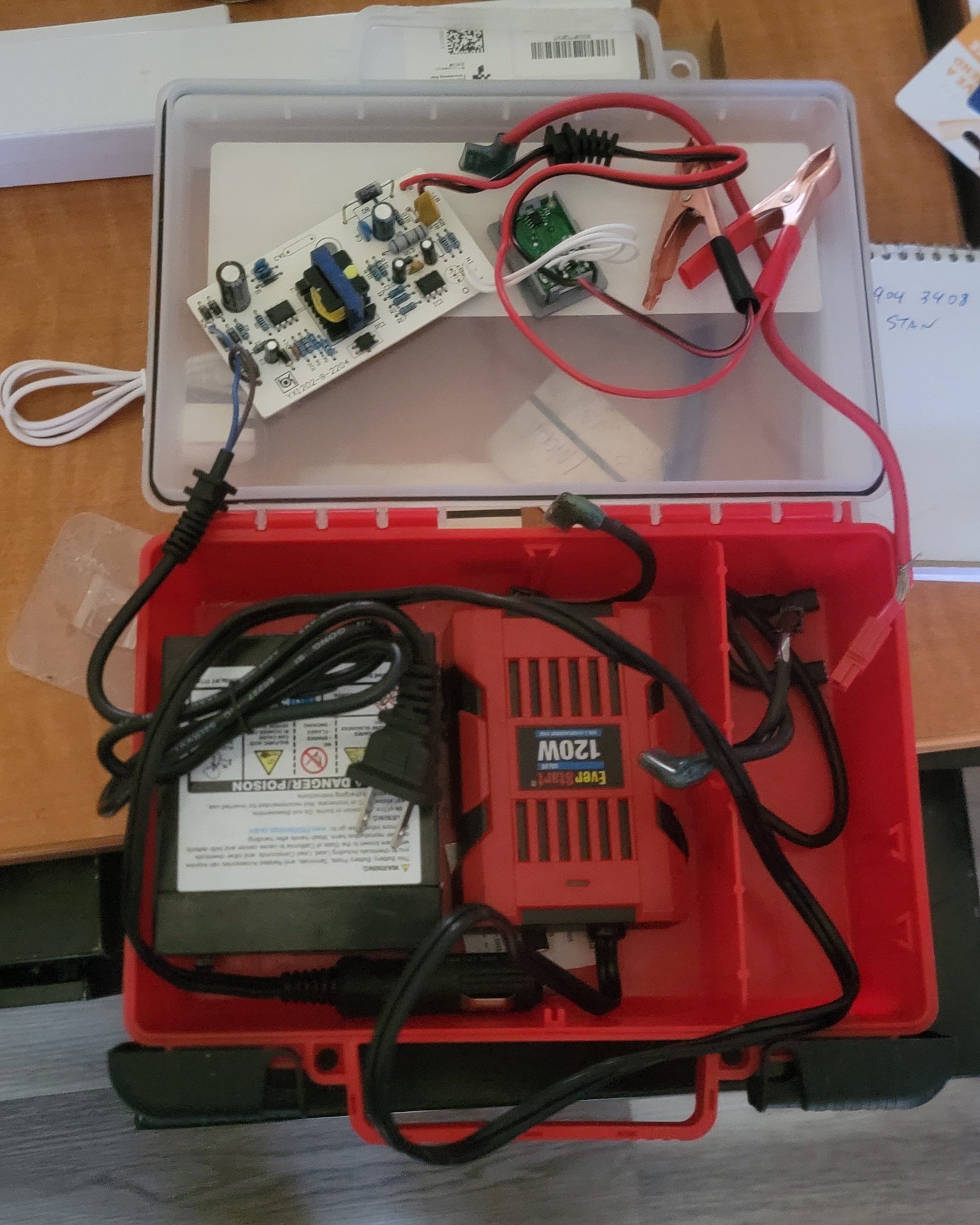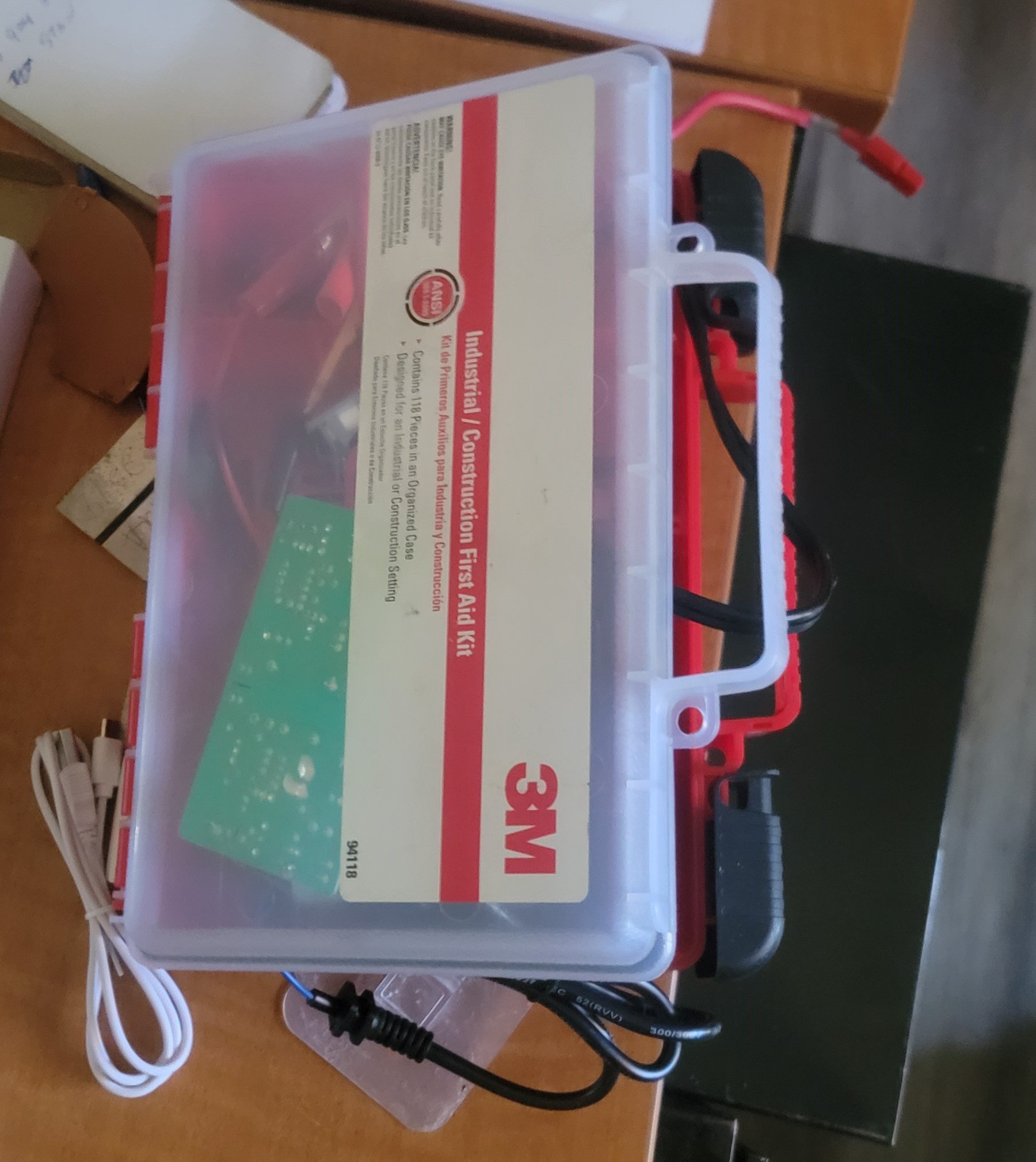I took a look around and a lot of comments mentioned to get one that uses ‘LiFePO4 Batteries’, and that seemed like a reasonable requirement.
They’re supposed to have a longer life span, be safer, light weight, and better charge/discharge efficiency which is in line with what I’d be looking for.
Some brands/models that I saw recommended:
BLUETTIcame up in more recent postsEcoflow(specifically theRIVER 2) came up a lotAnkerwas suggested a few times, but the comments weren’t that detailed
edit, added an image of what I’m referring to
Project Farm on YouTube just reviewed a bunch of these battery banks. Check out the video.
Wow 23 hours ago, perfect timing
Thanks!
I am halfway convinced he has a time machine and trolls forums looking for ideas. Then goes back in time and does the test to post the results just before you ask about something.
Very Impressive!
I don’t have a recommendation but thank you for not calling them a “solar generator”
I want a solar generator in my basement. Basically a very miniaturized Messier 82-core floating in my laundry room.
I imagine it might increase the temperature to hazardous levels sadly
Well yeah, if you don’t get the recommended containment it would, yeah.
Nonsense, I’ve installed a few, just need some duct tape.
Before I opened my own business and was camping a lot I was looking at jackery, then I realized how little power I use while camping. But it seemed to be the goto brand.
Edit: spelling
I was kinda hoping for a different outcome to the tests, to be honest, but it looks like it’s really the best around (according to these tests anyway). That being said, I’d probably go with a Grecell if I was being picky about my budget.
Bought a Jackery a few years ago for camping purposes, and I love it. We’ve never drained it completely from 100% charge. It had been sitting in the house, off for months, and we needed it this past weekend for camping. Pulled it out on TGiving day to find it was still @ 77%. Couldn’t find the charger because we recently moved, but we had the solar panels. It was charged back up to 100% within a few hours, which shocked me.
Its definitely overpowered for what we currently use/need it for, but we also lived through the 2021 Snowpocalypse in Texas, so I reasoned that it would come in handy if we ever ran into a similar situation again.
We have a Jackery 300 and just picked up a 1000. The 300 has been great camping and in power outages but we also just keep it in the living room to charge our small devices. It gets recharged on DIY solar setup.
The Explorer 1000 was crazy cheap for Black Friday and easily powers our chest freezers - we get frequent power outages. The only disappointment is they use a slightly different DC cable for car (ie 12V) that you have to pay extra for, but we can still charge from the inverter on the solar setup until we can source that plug - I ain’t paying the ludicrous $30 Jackery wants for a simple cable.
I was at the 24 Hours of Lemons at HPR this year and we developed a crack in our exhaust manifold at 2am. Tried to weld it using onsite power but kept tripping the breaker. Plugged the 30A MiG in to our Ecoflow and zapped away. Still had 80% juice when done.
We have a Jackery and we’re quite happy with it. It’s come in handy for a lot of random uses and they have a wide variety of charging options and capacities so you only pay for what you need. Battery life is good, build quality is good, we have no complaints.
I think Anker products are generally pretty good. Another option that might seem a bit left field is the DJI unit if you want to shell out more for a product with more power, options and from a solid brand, it’s maybe a bit more aimed at drone pilots and videographers but it’s also viable for camping and general use as well.
Don’t bother with anything from the brand “allpowers” I’ve had a few of their power stations and they were all junk. Your best bet really is to build one yourself. Buying a battery/inverter/mppt and a pelican style case to put it in is vastly cheaper than buying one of these power stations, and when the battery or whatever shits the bed it can be replaced easily.
Where would you acquire the items to make your own, namely the battery, and what’s the risk of killing myself trying this? Also would you be able to build in solar charging for this?
I was thinking something like this, it’s very easy to assemble.
If price is your main concern make one yourself. Specially if you don’t need 110
-
buy a 12v battery of your choice (deep cycle are best, but car batteries will do in a pinch, UPS batteries if you want small)
-
buy a tool box of adequate size for your battery, allow for extra room
-
order a “float charger”
-
Order USB and cigarette lighter ports as desired
-
wire it all up inside the toolbox
I’ve made a few with minimal effort, they’re great for camping and my latest one even allows me to jump start a car
There are plenty of guides out there with more detailed steps
https://www.youtube.com/watch?v=49Do__99Yr4
I’m currently making one for a friend, let me know if you guys want to see pics of the components
Yes, please!
This one is a very small 3Ah battery because my friend is using it as a proof of concept. He wants it to power a very small Wi-Fi spectrum analyzer / packet capture device when he goes war driving.
The beauty of Lead acid batteries is that they’re very cheap at the cost of additional weight and volume If I used 18650 Lithium Ion cells I could probably get more than twice the battery capacity, but it gets more expensive and more complex (You have to do some math to figure out how to wire the batteries to add up to 12V and calculate how many amps total so you can fuse it correctly)
In the pic you can see that there’s already a float charger I’ve taken out of the case to reduce the volume it takes (I normally encase them in epoxy) and an Inverter I’m going to wire externally for him to test 110 with a battery this small
I still have to cut holes for the USB adapters and float charger port, and I have to shop for a volt meter monitor that fits his needs.


-
I don’t have a specific brand offhand, but if you’re in the US I would recommend reaching out to your local amateur radio club and specifically the ARES group. These are the folks who respond during a natural disaster and set up emergency communications. If you can wait for about 6 months, you could go to Field Day in June.
specifically the ARES group
Cool, it looks like it operates up here in Canada as well, thanks for sharing! I’ll check them out sometime
https://en.m.wikipedia.org/wiki/Amateur_Radio_Emergency_Service
In the United States and Canada, the Amateur Radio Emergency Service (ARES) is a corps of trained amateur radio operator volunteers organized to assist in public service and emergency communications. It is organized and sponsored by the American Radio Relay League and the Radio Amateurs of Canada.
Great! When you’re setting up emergency communications for 1,000 people who are without power for days to weeks, you want to make sure your battery packs are going to work reliably.
Have an ecoflow river 2, works great
I have several Ecoflow batteries. Delta, River Pro, and River 3.
No complaints. I’ve used them in power outages. The delta is large enough to power an oil filled heater, and any of them can keep my fridge and network appliances running.
I’ve since gotten solar, but I still keep the portable ones around. The River 3 acts as a UPS and emergency power for my CPAP machine, and the others are still an extra 2kW for whatever I might need.
Asan aside, they also work great for monitoring device power use in lieu of something like a kill-a-watt. I’ve used them intermittently to confirm power draws on devices in my house in order to optimize my power consumption for my solar setup and find inefficiencies in my home.
I recently got a Jackery for camping and I like it! Haven’t had it long enough to tell you long term problems, but my initial impressions and first real usage were good. The displays are nice, I didn’t test bluetooth/wifi (seemed like a waste of power), but the solar panel and other charging options all worked well. Build quality was good. I wish I’d splurged to get a bigger model though, the Explorerer 300 Plus didn’t have quite enough juice for all our needs.
I have a GoalZero Yeti 1000x. I haven’t put it through the paces too much yet, but it seems to work well.
It’s not LiFePO4, but I chose it cause it allows you to expand it with additional batteries as needed, and it technically supports integrating with your home panel (though I have no plans to do either thing yet).
They try to be a bit more “plug and play”, so they use semi-proprietary jacks for their solar panel integration. They seem to count on the fact that most people are scared of electricity so they try to make it easy, but they definitely charge for the convenience (for the solar panels specifically).
Their “high power port” that you can use for solar panel input is really just standard APP connectors in a vertical configuration instead of horizontal, so you can easily buy a cable that allows you to plug into it. They just try not to tell you that openly for liability, I’d assume.
Other brands I’ve looked at previously include jackery and westinghouse. I might have bought one of those, instead, but I got a good deal on the goalzero.
I think the biggest thing is that the battery cells themselves always have a finite life, so it’s most important to see if you can get something with a replaceable battery, or expandable capacity.
Surelly something capable of being trickle charged from a solar panel would be a superior option, at least for camping or any sort of situation were having no access to power would last for days.
Thinking about it, the “power outage” use case is probably more than sufficiently different from “camping” that which is the one you care most about has a big weight on the requirements for the portable power station.
Go with solid state. Lighter and it’ll last much longer. https://yoshinopower.com/?srsltid=AfmBOop4ZfctUfN3-XeCk8RO2vJY9pKENf9lsin80O5n-z8iinHKzerR









